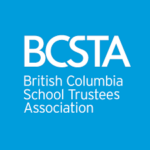Parcel tax review panel ready to roll as hike in water tax is deferred until 2013
Complaints against the parcel taxes Rossland levies on certain properties will be heard by the Parcel Tax Roll Review Panel next Wednesday, May 23, at noon, at City Hall.
Last week council appointed Coun. Jody Blomme, Coun. Kathy Wallace, and Mayor Greg Granstrom to serve on the review panel. Property owners who feel a parcel tax does not apply to them, or has been misapplied, will be heard by the panel as required by provincial legislation.
“Parcel tax rates are reviewed each year to set the appropriate rate for budgeted capital expenditures and debt payments,” the CAO and CFO wrote to council in a memo.
Although no change was required to cover capital projects in the sewer fund this year, there had been discussions around a proposed 25 per cent increase in the water service parcel tax.
“The existing parcel tax rates have been in effect since 2009 without an increase,” staff wrote, and capital projects in the 2012 water fund suggest the rate per parcel needed to be increased from $149.60 to $198.60.
Nevertheless, staff recommended—and council agreed—that any increase in the water tax be deferred until 2013. Staff reasoned that by then most water meters will have been installed.
“This will enable the City to determine the appropriate rate structure for capital and operating for the water system,” staff wrote.
Coun. Kathy Moore asked, “I’m curious, why? We have a lot of projects coming up. We’re using a lot of our reserves on the Columbia-Washington project. This [increase] was designed to refill the coffers a bit.”
CAO Victor Kumar replied, “Our assessment was premature at that time.” He suggested that staff and council would benefit from observations of water meter data over the course of 2012. “We’ll have a better picture for 2013 to 2017,” Kumar said.
As Coun. Cary Fisher subsequently noted, the city faces a difficult balancing act as it sets water rates. The expenses of the water system are largely fixed, regardless of water useage; as the utility begins to charge by usage—a variable number, that may even go down considerably as the fee structure encourages water conservation—the same fixed costs still need to be paid.

























